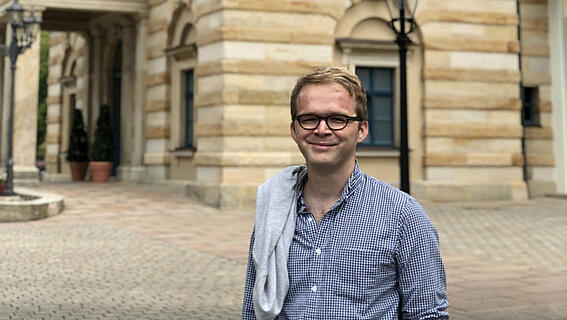What is the major focus of your research in the US and here at Bucerius? What are the main issues in your research area?
In the United States, my research has been focused on transnational law, choice of law, and international dispute resolution. This is in part due to my practice as an attorney at Pillsbury Winthrop Shaw Pittman in Washington, D.C., but it is also the result of long-running academic research interests.
At Bucerius, my goal was to explore issues in German jurisprudence that would be of interest to English-speaking audiences. When I first arrived in Hamburg in early October 2018, I began to familiarize myself with the German legal literature on de facto and de jure force of precedent in German high courts, such as the Federal Constitutional Court and the Federal Court of Justice.
To my delight, the subject had been covered exhaustively by Professor Merdhad Payandeh in his recent habilitation thesis. Thus, rather than add to his research, Professor Christian Bumke, my research adviser, pointed me in the direction of “law bending” (Rechtsbeugung)—a peculiar section of the German penal code, which criminalizes excesses in judicial discretion.
Roughly 150 years of German high courts’ jurisprudence and statutory history provided rich material for comprehending the Federal Court of Justice’s decision-making process, particularly in politically charged times, such as the years following the founding of the Federal Republic of Germany in the 1950s and the aftermath of German reunification in the 1990s.
What emerged was a complex struggle both to give meaning to Rechtsbeugung by holding judges accountable, and to do so while remaining mindful of core rule-of-law principles (Rechtsstaat), including judicial independence and separation of powers. The Federal Court of Justice’s failure in the 1950s and 1960s to uphold the conviction of a single career Nazi-era judge had been chastised, largely for good reason, by German academics (and decades later the Court itself). Yet my objective was to discern whether the German legal system’s experience holds lessons for other jurisdictions.
Why did you decide to conduct your research in Germany, and at Bucerius in particular?
I had been contemplating a research stay in Germany for a year or so, but I struggled to find an opportunity that would be limited to just a few months and that would make me part of an inviting and thriving academic community. Several Bucerius Law students had been fellow students of mine at the University of Michigan Law School. I had always been impressed by them, and Bucerius was thus on my shortlist of places to consider.
Daniel Halberstam, my former professor in Ann Arbor, along with Professor Mathias Reimann, encouraged me to reach out to President Katharina Boelle-Woelki. She quickly recommended Professor Bumke for my research interests, and about six weeks later, I arrived in Hamburg. A research fellowship, awarded by the Joachim Herz Stiftung to young U.S. legal scholars, was icing on the cake, so to speak, and helped defray the expense of my stay in Hamburg.
3. What was the most rewarding aspect of your stay at Bucerius, and what would you recommend to others who are thinking of applying for such a research stay?
The beauty of Bucerius is its small size. Within a few days, faces began to look familiar, and I began to feel like a part of the law school community. Bucerius’s international group of visiting scholars and students only amplifies the school’s ability to make people feel at home. I would encourage prospective visiting scholars to take in as many of the lectures and to meet as many of the faculty and students as possible. You are likely to learn as much from them as from the materials in the library.
What was the biggest challenge in settling in Hamburg?
My dirty little secret is that I grew up in Germany but have been living, studying, and working in the United States since my Abitur. So I did not experience the kind of cultural adjustment that others may. That said, finding a place to live, especially short-term, is never an easy feat in Hamburg. Through friends of friends, I was lucky to find a lovely couple in Ottensen with a spare bedroom, which they rented to me.
Hamburg is one of my favorite cities in Germany, and I was fortunate to be there for an atypically mild fall and early winter. Daily runs through Planten un Blomen, walks by the Elbe, and visits to the Staatsoper all made for fabulous time when I took breaks from the library.

